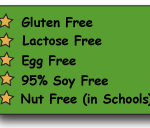Eat less meat, What for? – David Suzuki
-Courtesy www.davidsuzuki.org 
Although many people reduce their meat consumption for health or humanitarian concerns, there are also environmental reasons for eating less meat.
Meat production requires a tremendous amount of resources such as water and fossil fuels, while runoff from livestock operations may pollute rivers, lakes and even drinking water.
Did you know:
- Roughly one-fifth of the world’s land is used for grazing. That’s twice the area used for growing crops. Much of this land once provided habitat for flora and fauna before being cleared for livestock.
- Feedlots cause water pollution. Nearly 21 per cent of the average person’s contribution to common water pollution is caused by meat consumption from high-density farms. By designating just one “meat free” day a week you’ll help reduce common water pollutants by as much as 21 kilograms annually.
- Meat production requires more water than raising crops. For example, 283 grams (10 oz) of beef requires 85 times more water to produce than the same amount of potatoes.
- What’s good for the earth can also be good for you! Reducing meat consumption lowers the risks of heart disease and stroke. Eating more vegetables, fruits, whole grains and legumes improves your cardiovascular health and reduces the risks of obesity, diabetes and cancer.
Plenty of protein options besides meat
Many people are afraid that eating less meat means they won’t get adequate protein or other essential nutrients. But there’s no need to worry. In fact, most western adults (and some children) tend to suffer from excess protein. Even vegetarians frequently consume too much protein. As long as you eat a variety of foods including grains, fruits and vegetables, beans, nuts or seeds and a small amount of fat, you’ll get all the nutrients you need.
The World Cancer Research Fund and the American Institute for Cancer Research recommend we consume:
- More than seven servings of a variety of grains, legumes, roots, tubers and plantains that haven’t been heavily processed.
- 5-10 servings daily of a variety of vegetables and fruits all year long with a minimum of two green vegetables and one citrus fruit.
TASTY MEAT ALTERNATIVES
Meat supplies us with protein, fat, some B vitamins and minerals (mostly iron and zinc). Additionally, fish supplies vitamins A, D and F. All of these nutrients can be found in other sources.
Veggie Protein Alternatives
Nuts and Seeds: Hazelnuts Brazil Nuts, Almonds, Cashews, Walnuts, Sesame Seeds, Pumpkin Seeds, and Sunflower Seeds.
Legumes: Beans (black beans, kidney beans, navy beans, lima beans, soya beans, chickpeas etc.), Peas (green and yellow peas, black-eyed peas), Lentils (red and green lentils), and Groundnuts (such as peanuts).
Grains and Cereals: Rice, Wheat, Millet, Quinoa, Teff, Barley, Buckwheat, Corn, Spelt, Kamut, Oats, Rye and Amaranth.
Vegetables: Some raw vegetables are required for good health and digestion, otherwise vegetables may be lightly steamed, sautéed or baked to best preserve nutrient content. Sea vegetables are especially nutritious (kelp, alaria, dulse).
Remember: Food choices should be local and organic whenever possible!
Enjoy veggies
Canned and dry beans, as well as whole grains are relatively easy to buy and store year-round. Raw, fresh nuts and seeds may be more difficult to find but can be ordered through food co-operatives or online if your local stores don’t stock them. Keep these foods cool and dry at all times so they don’t mold or become rancid. Grains, nuts and seeds in particular should be kept in a refrigerator or freezer until needed.
In winter, obtaining fresh, local produce is more difficult. Here are some ways to ensure you have access to vegetables.
- Winter storage. When stored properly, fresh vegetables keep most of their food value and flavour. Good winter keepers include potatoes, carrots, beets, cabbage, Jerusalem artichokes, sweet potatoes, turnips, rutabagas, winter squash, onions and garlic.
- Winter gardening. Certain varieties of vegetables may be left in the garden over winter with mulch or other covers and harvested as needed when the weather warms up. Green vegetables such as spinach, chard, kale, mustard, collards and leeks can be planted in autumn for winter use.
- Freezing and Canning Produce. You can freeze most vegetables and fruits
- Dehydrating Produce. This method of preserving food removes water from produce and preserves its nutritional value. Best of all, food dehydrators are relatively inexpensive.
MEAT AND FISH TIPS
When you eat meat and fish here are some good rules to follow:
- Ideally, locally produced organic meat is best since farms tend to be smaller and don’t use the antibiotics and hormones associated with conventional livestock operations. You’ll also support a local producer and reduce greenhouse gas emissions from transporting food.
- Don’t eat farmed salmon. Salmon feedlots consume huge amounts of feed and release antibiotics into marine environments. Escapees from these farms also compete with wild stocks for important habitat.
- If you eat wild fish, make sure you’re not buying endangered species or fish from areas where harvesting causes other environmental problems.




